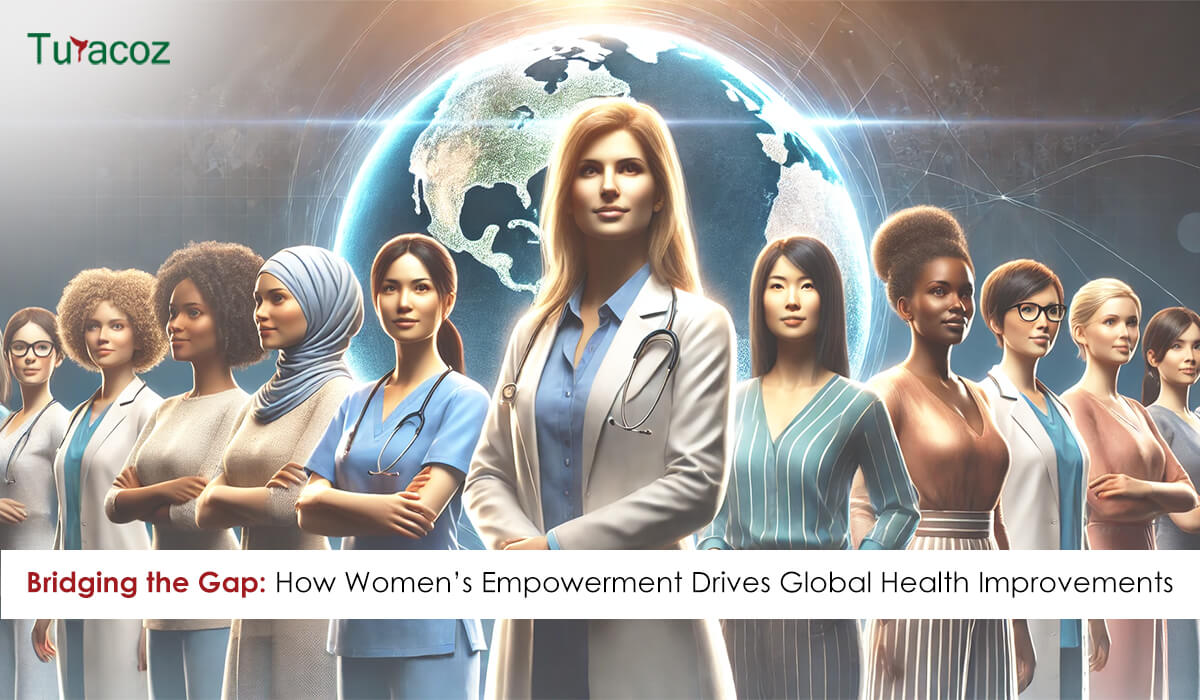
Imagine a world where every woman has the power to make decisions about her health, future, and family’s well-being. A world where women are not just patients but policymakers, not just caregivers but change-makers. This isn’t just an ideal—it’s a necessity. Women’s empowerment is not only about fairness; it is a fundamental driver of global health and economic progress. When women have access to education, financial resources, and quality healthcare, they uplift entire communities. Yet, despite undeniable progress, many women still face barriers that prevent them from achieving optimal health and well-being. Addressing these challenges through policy, advocacy, and leadership opportunities is essential for fostering a healthier, more equitable world.
Women as pillars of global health
Women play a fundamental role in health systems—not only as caregivers in their families but also as healthcare professionals, policymakers, and advocates. Studies have shown that societies with stronger female leadership representation experience improved health outcomes. For instance, Rwanda, where women hold over 60% of parliamentary seats, has seen notable progress in reducing maternal and child mortality rates.1,2
Moreover, female-led health initiatives tend to prioritize community well-being, increasing access to essential services such as vaccinations, maternal healthcare, and family planning. Women leaders are more likely to invest in equitable healthcare solutions that address the unique needs of women and children.3
Bridging the gap: Gender disparities in health
Despite their critical role, women often face disproportionate barriers to healthcare access. Gender inequalities manifest in various ways, including restricted access to reproductive health services, economic dependency that limits medical decision-making, and cultural norms that discourage seeking care. The World Health Organization (WHO) has identified gender-based violence and inadequate access to sexual and reproductive health services as key issues affecting women’s overall health.4
Furthermore, the intersection of gender and economic status exacerbates health disparities. Women in low-income settings are less likely to receive preventive care, leading to higher incidences of maternal mortality and untreated chronic illnesses.
Empowering women through healthcare access
Ensuring universal health coverage for women requires a multifaceted approach that includes:
Women as agents of change
Numerous examples highlight the transformative power of women’s leadership in health.
Dr. Soumya Swaminathan, former Chief Scientist at WHO, has been instrumental in global health policy, particularly in tackling tuberculosis, infectious diseases, and pandemic preparedness.
Dr. Kiran Mazumdar-Shaw, founder of Biocon, has revolutionized India’s biotechnology sector by pioneering affordable insulin and cancer treatments. Through her innovations, she has ensured greater access to life-saving medicines, particularly for low-income communities, and has championed women’s leadership in STEM and healthcare innovation.
Furthermore, grassroots movements led by women in developing nations have been instrumental in tackling health crises. Community-driven initiatives focusing on malaria prevention, maternal health, and child nutrition have significantly reduced disease burdens in low-resource settings. For example, the Self-Employed Women’s Association (SEWA) in India has improved access to healthcare for informal workers, helping women take charge of their own health.
A call to action
Empowering women in health is not just about fairness—it is about effectiveness. The evidence is clear: when women have control over their health and economic resources, societies thrive.
By prioritizing gender-inclusive health policies and investing in women as decision-makers, we can move closer to a world where health equity is a reality for all.
What role will you play in empowering women for better global health?
References